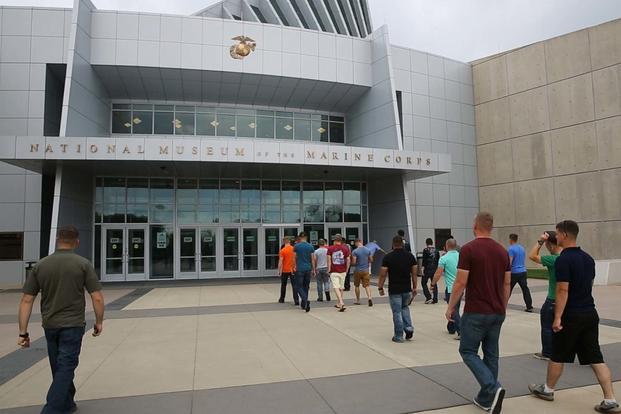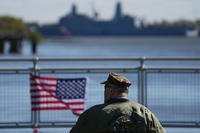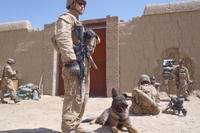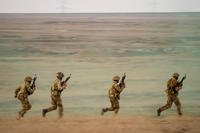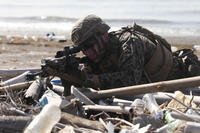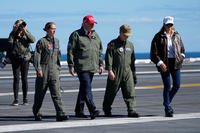Marillyn A. Hewson is chairwoman, president and chief executive officer of Lockheed Martin.
No place embodies the breadth and far-reaching legacy of the Marines better than the National Museum of the Marine Corps in Quantico, Virginia.
The museum tells the story of the world's premier expeditionary force and the integral role the Marine Corps has played throughout American history.
Since the formation of the Continental Marines at Philadelphia's Tun Tavern in 1775, it has been a story of the Marines adapting and overcoming challenges in conflicts around the world -- all while staying true to the foundational values of honor, courage and commitment.
That's why it was such a pleasure to join with senior Marine leaders to celebrate the opening of the Medal of Honor Theatre and the premiere of the new documentary "We, The Marines."
These are the first steps in a major expansion that will add exhibits about the Marine Corps in the modern era, covering 1976 to the present.
The Medal of Honor Theater, sponsored by Lockheed Martin, and the film will be the capstone experience for visitors, showing what it takes to earn the privilege of wearing the Eagle, Globe and Anchor and what life as a modern Marine entails.
At Lockheed Martin, we are deeply proud to have contributed to the museum's expansion. We recognize the need for Marines to have a place to preserve and share their remarkable history.
We also see the museum as a place for the American public to better understand the needs and ongoing sacrifices of modern Marines -- so our nation can better support them now and in the future.
As we look ahead to the threats and challenges of the 21st century, there is no doubt the Corps will continue to be critical to global security and rapid response.
For this reason, Lockheed Martin is committed to working to provide Marines with the technologies and capabilities needed to carry out their critical missions.
As a strong industry partner, we are asking the question: What will the story of the Marine Corps be in years to come?
We believe the challenges Marines are facing are more volatile and unpredictable than at any time in their 241-year history.
Threats are intercontinental and asymmetric. Potential adversaries range from near-peer nations to non-state actors. Today's Marines must be prepared for everything from urban warfare and chemical weapons to humanitarian crises and even cyberattacks.
To deal with these modern challenges, Marines need modern equipment, training and support.
As Marine Corps Commandant Gen. Robert Neller said in testimony before Congress earlier this year, "History has not been kind to militaries that fail to evolve, and the global change we are witnessing is rapid and dramatic."
Of course, few organizations have a better track record of doing more with less than the Corps.
But in recent years, the ever-widening gap between needs and resources has become dangerously unsustainable, forcing Marines to make difficult decisions every day.
Lockheed Martin has an important role to play in addressing the Corps' evolving needs. We are focused on providing affordable, flexible and comprehensive solutions that will allow the service to increase interoperability, maximize agility, and extend its reach.
And we will continue to think beyond today to ensure the technologies we provide are ready for the battlefields of tomorrow.
We also recognize that our elected leaders in Washington must work together to ensure that the Marine Corps has the full support it needs, while simultaneously investing in the technologies that ensure it remains the world's premier expeditionary force.
Fully funding critical modernization programs such as the F-35 and CH-53K will give the Marine Corps and its industry partners the stability and momentum necessary to get these technologies into the field on time and on budget.
With strong collaboration between the Marines, the administration, Congress and industry, we can honor the legacy of the United States Marine Corps and ensure that Marines have the capabilities necessary to defend America's interests for decades to come.
-- If you would like to submit your own commentary, please send your article to opinions@military.com for consideration.
